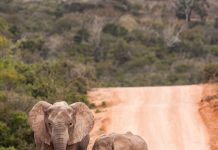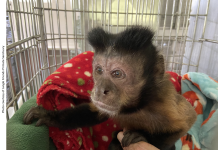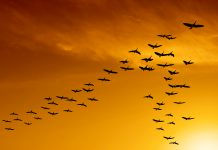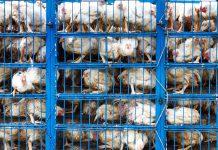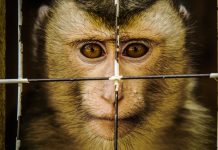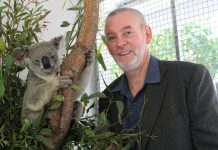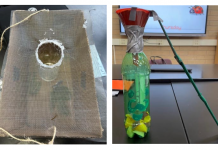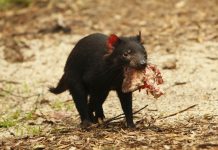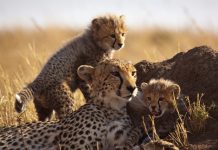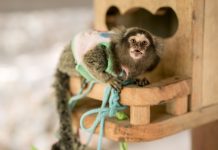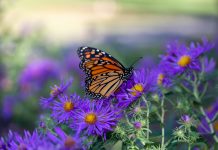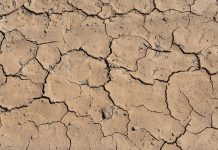Home 2024
Archives
Conserving elephant populations: Not without consultation
Global North and South when it comes to conservation, human rights and climate protection, particularly concerning elephant populations.
The pet primate trade in the U.S.
Dr Melissa Seaboch, Professor and Department Chair at Salt Lake Community College, discusses the challenges regarding the pet primate trade in the U.S., including its impact on animal welfare and owners and the complexity of regulations.
Electric-field nanobubbles: Re-engineering water treatment
Niall J. English, from the University College Dublin, School of Chemical and Bioprocess Engineering, discusses electric-field generated nanobubbles, including re-engineering water treatment – and beyond.
Time to strengthen and enforce the north american migratory bird treaty act
The number of migratory bird populations is declining; Keith Hobson, professor and research scientist at Environment and Climate Change Canada and Western University, outlines the importance of updating conventions to protect these vulnerable species.
How Tun-AI technology can be used to estimate tuna biomass
Satlink, a leading buoy manufacturer, has partnered with Komorebi AI researchers to develop Tun-AI, a machine-learning protocol that contextualizes echo-sounder data from buoys to estimate tuna biomass, shaping the future of fishery science.
Welfare economics: Reducing animal suffering at negligible costs
Yew-Kwang Ng, Emeritus Professor from the Department of Economics, at Monash University in Australia, argues the case for reducing animal suffering at negligible costs to human beings.
Moving past animal experiments to understand human neurological disease
Richard J. Miller, PhD, Professor Emeritus of Pharmacology at Northwestern University Feinberg School of Medicine, says that the belief monkeys and other animals are essential for performing translationally useful research for human neurological disease is outdated and incompatible with 21st-century science.
Navigating koala conservation challenges with advanced tech and game-changing vaccine research
Discover the intricate tale of koala survival, from habitat struggles to the rise of Chlamydia vaccines, in this exclusive interview with Professor Peter Timms from The University of Sunshine Coast, Australia.
Youths’ solutions to local invasive species
Educating students about real-world, issues such as local invasive species aims to encourage wider engagement with STEM.
Nutritional management of aging pets
Morgan A. Key from Hill’s Pet Nutrition outlines the changes associated with aging pets and how nutrition can help.
Cuba’s first motus tower for tracking migrant land birds
Keith Hobson, Professor and Research Scientist at Environment and Climate Change Canada and Western University, discusses updates in the expansion of tracking migratory birds in Central and South America, and the Caribbean.
The crucial role of scavengers in ecosystem health
Animal scavengers’ role in maintaining ecosystem balance is often overlooked. Dr Laurel Lynch from the University of Idaho tells us about her important research on how scavenging by Tasmanian devils influences ecosystem processes.
Isotopic applications assit in forensic tracking of illegally traded wildlife parts
Keith A. Hobson, a Research Scientist and Professor at Environment and Climate Change Canada, discusses the use of stable isotopes to trace the origins of animal parts in order to mitigate the illegal wildlife trade.
Sustainably developing great-tasting pet foods
Samantha Combe and Melissa Vanchina from Hill’s Pet Nutrition discuss the environmental impact of pet food, with a specific focus on sustainable alternatives to food palatants.
Further understanding the pet primate trade in the U.S.
Dr Melissa Seaboch explores the potential drivers of the pet primate trade in the U.S. and the troubling impact on both animals and owners.
Food webs and fish: Ocean climate change in Alaska
Open Access Government talks to ocean climate expert Dr. Robert Suryan, who is the lead of an ecosystem studies program at the Alaska Fisheries Science Center’s Auke Bay Laboratories.
Nutritional management of chronic kidney disease in pets
Renea Creech and Kim Wilson outline the challenges of Chronic Kidney Disease in pets, the irreversible loss of kidney function, and how nutrition can help.
Stored fuel’s importance for migrating monarch butterflies: Implications for conserving all migrant animals
In his latest research, Keith A. Hobson, Research Scientist and Professor at Western University, explores why stored fuel is critical to migrating animals, such as monarch butterflies.
The effect of soil degradation on human, animal and plant health
Dr. Christine Sprunger, soil scientist and ecologist at W.K. Kellogg Biological Station (KBS) and the Department of Plant, Soil, and Microbial Sciences at Michigan State University, discusses the danger of soil degradation on human and animal life, and what we can do to mitigate it.
Why do we always care about the welfare of laboratory animals?
Seasoned experts from the Daegu-Gyeongbuk Medical Innovation Foundation (K-MEDI hub) in South Korea share their research perspectives on the welfare of laboratory animals, including the issue of veterinary care.


